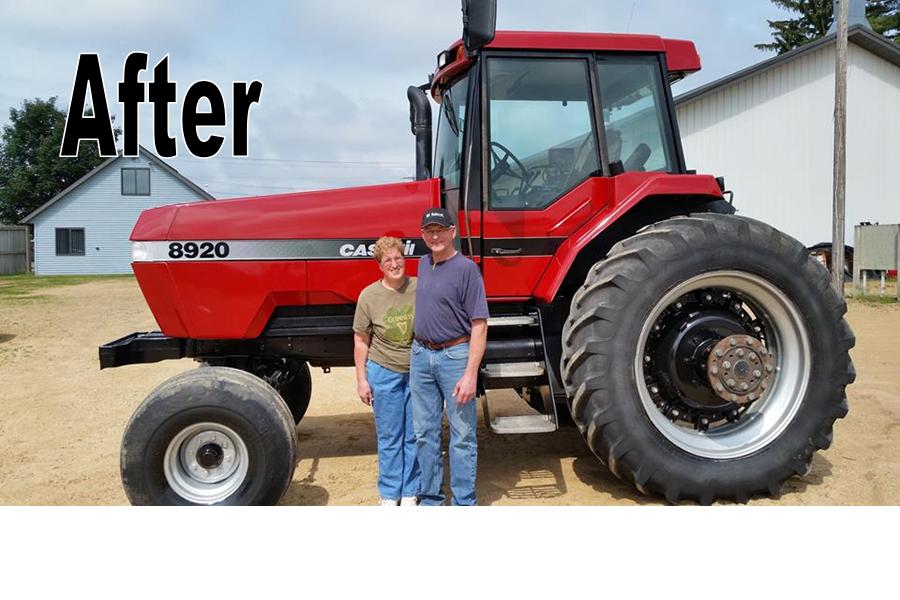Paint that is faded or highly oxidized is not just unattractive—it drains value from expensive equipment.
Driving around southwestern Wisconsin, Ryan Kaiser noticed many faded farm outbuildings and equipment. As a self-employed vehicle upholsterer, he also worked on many boats and cars with weather-damaged finishes. “There has to be a product that would allow me to restore those colors,” he thought. Ryan began researching products and testing applications. When he found an extremely corrosion-resistant aftermarket coating product that he could confidently offer with a 10-year warranty, he was ready to take the next step.
Ryan visited the product’s inventor to become certified in its application. He launched Kaiser Nano Tech Solutions, traveling to apply coatings of ToughGuard (a surface filler) and Nano-Clear (a clear-coat finish) to vehicles, boats, and agricultural equipment on-site. He also became a distributor of the Nano-Clear product line.
Finding the right market
Ryan started out thinking that his customers would be farmers interested in improving the look and lifespan of their implements and outbuildings. He quickly learned they would be reluctant buyers. Next, he targeted auto body shops, not realizing that his products’ durability meant longer intervals before shops could charge for the next paint job. Ryan worked hard, but his business wasn’t taking off. It was back to the whiteboard.
Through family connections, he learned about the Southwest Wisconsin SBDC, which serves Crawford, Grant, Green, Iowa, Lafayette, and Richland counties. He reached out to Brock Waterman, the center’s primary business consultant.
“When we started working together, he was really stressed,” Brock said. “I saw he was trying to sell the wrong product to the wrong market and he didn’t realize it.” Brock taught Ryan to use the Lean Startup method, using the Business Model Canvas to explore customer segments, value propositions, revenue streams, and marketing. “Ryan is great to work with, he listens and has embraced learning as part of the process,” said Brock.
Ryan conducted market interviews to learn what potential customers would likely buy—and what they wanted in the customer experience. It became clear that targeting implement dealerships would be more likely to succeed. With this approach, Ryan could build long-term customer relationships.
“I’ve learned from Brock how important it is to listen to your customers. Don’t assume you know what they need—just listen,” Ryan observed.
Accomplishments with the WI SBDC–Southwest Wisconsin
- Applied Lean Startup process
- Redefined target market strategy
- Replaced “shooting from the hip and writing checks” with disciplined planning
Location, location, location
Working with the sales side at agricultural implement dealers worked well for Ryan. A typical job might involve spraying the previous year’s unsold models that had faded after exposure to the elements. Working on the service side with the dealers’ customers’ used equipment made faded and oxidized implements look new again. But this service raised a new question: location. “We thought we could do the application at the farmer’s place or at the implement dealer’s. But we found that I really need a shop of my own,” said Ryan. He will need a rollback truck to transport equipment to and from the shop as well.
Implementing the Lean Startup process, Ryan is shop-hunting by lining up contracts and determining the space he will need to serve them. He is now working with Brock on strategies for financing Kaiser Nano Tech Solution’s next stage of growth, which will include outfitting a new location with vehicle lifts and keel-stands. He has recently added commercial customers among tractor-trailer and school bus fleets to his base in the agricultural, marine, and construction markets. He has a solid business plan for growing into larger markets nearby, including Madison and the Quad Cities.
Ryan said, “I’m lucky I met Brock—If I hadn’t, I would probably have burned through all my savings.”
